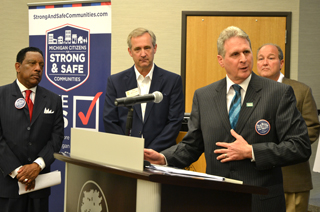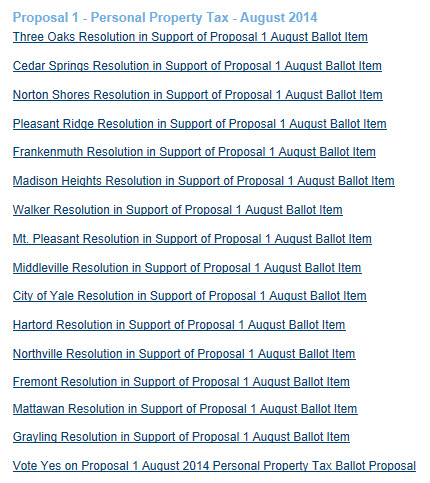The Michigan House Tax Policy Committee today is reviewing legislative proposals regarding what’s known as the data center issue and the Michigan Municipal League along with other organizations have distributed a joint statement regarding the legislation.
The biggest concern from the League’s perspective is ensuring that local communities continue to have the ability to establish local control on both existing and future abatement requests, like we have for other economic development abatement tools. One proposal being shopped by the existing data center industry would eliminate the current language providing local involvement in future data center investments. The League and other local government groups are opposed to this effort. We feel it is appropriate to maintain local involvement in any decision on whether to abate taxes as an economic development tool.
Here is the full statement on this issue by the League, the Michigan Association of Counties (MAC) and the Michigan Townships Association (MTA):
As the representatives of local government in Michigan, our organizations ― which are responsible for delivering the daily services Michigan residents count on ― wish to clarify our position on the various legislative proposals being discussed for the data center industry, especially those surrounding exemptions for personal property.
Local governments welcome economic development/job creation in this state and our goal is to continue to partner with the state.
If the Legislature and administration believe exemptions for existing firms and their existing equipment in a broad-based personal property exemption framework are necessary, we recommend the exemption for current equipment follow the recently adopted system for small taxpayers and manufacturers, allowing the local units to be fully reimbursed for the reductions to their tax base.
In our view, though, a blanket, state-ordered exemption would be counterproductive, given the existing economic development tools available to reduce/abate personal property for business, including data centers.
Absent a reimbursement mechanism, language similar to what the House and Senate are considering, which allows for a local unit to approve/deny a request for an abatement of data center personal property, is vital. Allowing local governments to be involved in this way ensures they are able to evaluate the local budget costs against the benefits of proposed exemptions, just as they do with all other economic development decisions.
Adoption of one of these approaches will protect existing local government budgets and preserve the role of the local unit in these critical local economic development decisions.
Thank you for your consideration. We welcome the opportunity to discuss further should you have any questions.
– Chris Hackbarth, Director of State Affairs for the Michigan Municipal League
– Judy Allen, Director of Government Relations for the Michigan Townships Association
– Steve Currie, Deputy Director for the Michigan Association of Counties
Posted by Matt Bach on behalf of Chris Hackbarth. For more information contact Hackbarth at chackbarth@mml.org and 517-908-0304.





